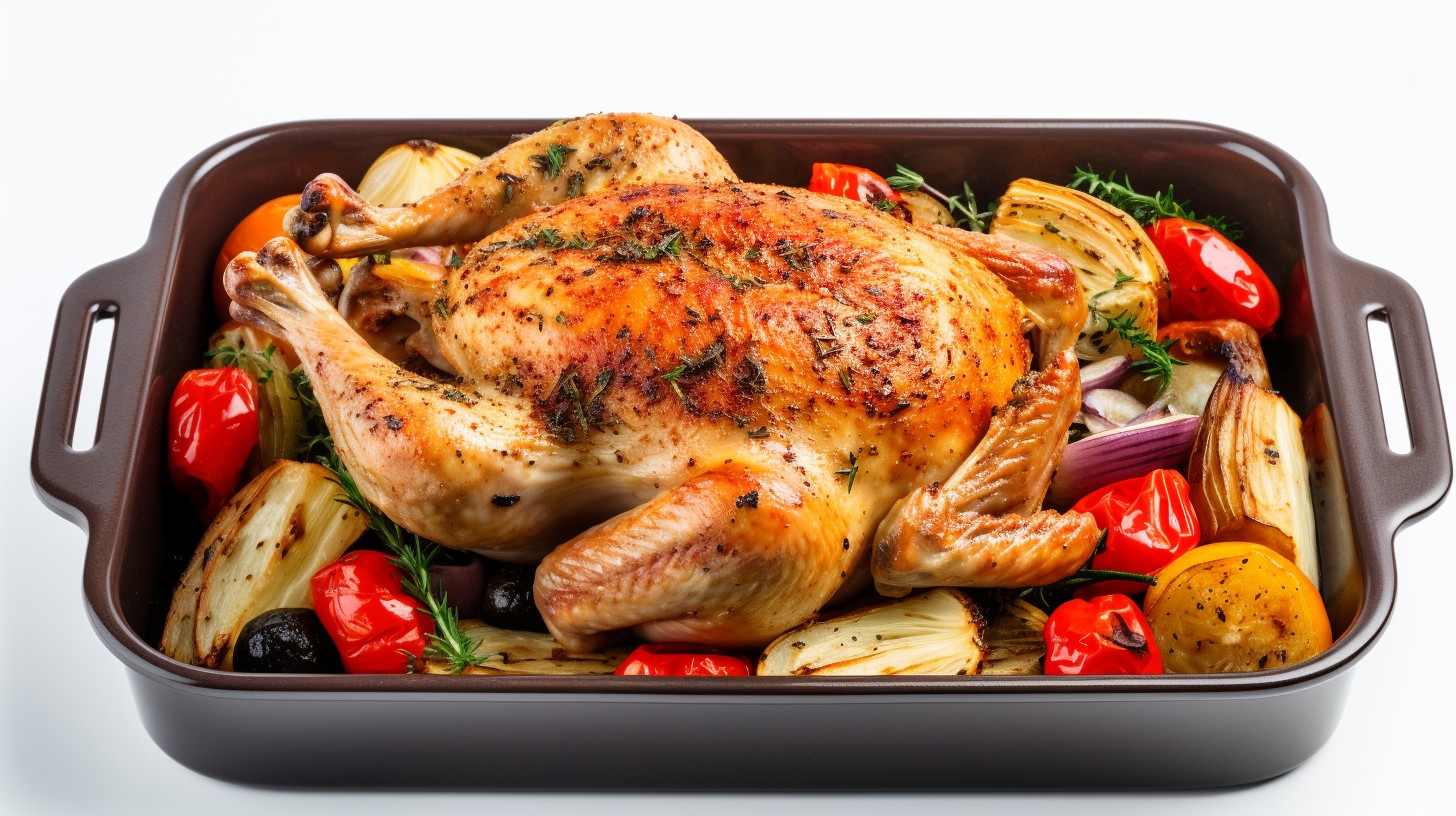Roasted Chicken with Fresh Herbs and Vegetables
This recipe was created by a loving mother with a histamine-intolerant child. Yearning to provide nutritious, delicious, and histamine-safe meals, she came up with this roasted chicken and vegetable medley. It quickly became a weekly staple in their household and is now being shared so that others can also enjoy a friendly dish.

Why suitable for low histanmine diet
This Roasted Chicken with Fresh Herbs and Vegetables is ideal for a low histamine diet. Chicken is a low histamine protein source, and the vegetables used here – carrots, parsnips, zucchinis, squashes – are all low in histamine. The use of fresh herbs instead of dried or powdered spices also makes this recipe ideal for those following a low histamine diet.
Ingredients
All the ingredients with the Amazon Fresh logo can be delivered within 2 hours. Just click on the ingredients and get it.
1 whole chicken (around 4-5 lbs)

1 teaspoon sea salt

1/2 teaspoon black pepper

1 tablespoon olive oil

1 tablespoon fresh rosemary, chopped

1 tablespoon fresh sage, chopped
2 large carrots, peeled and cut into chunks

2 large parsnips, peeled and cut into chunks
2 medium zucchinis, cut into chunks

2 medium yellow squashes, cut into chunks
Instructions
- 0Preheat your oven to 375°F (190°C). While the oven preheats, prep your chicken by removing any giblets and patting it dry with a paper towel.
- 1Season the chicken all over with salt, pepper, chopped rosemary, and sage. Brush it lightly with olive oil.
- 2In a roasting pan, spread out the chunks of carrots, parsnips, zucchinis, and squashes. Place the seasoned chicken on top of the vegetables.
- 3Roast the chicken and vegetables in the preheated oven for around 1.5 - 2 hours, or until the chicken's internal temperature reaches 165°F (74°C).
- 4Remove the pan from the oven and let the chicken rest for about 10-15 minutes before carving. Serve the chicken with the roasted vegetables on the side.
Tipps
Selecting Your Chicken
Choosing a fresh chicken over a frozen one ensures that less histamine has had time to develop. But if you must use frozen chicken, thaw it in the fridge rather than at room temperature to minimize histamine production.
Vary Your Vegetables
You can tailor the veggies to your liking. Just ensure to pick vegetables that are low in histamine and safe for you to consume.
Fresh Herbs Over Dried
Fresh herbs are lower in histamine than dried herbs. Using them fresh can boost the flavor of your dish without raising histamine levels.
Resting the Chicken
Allowing the chicken to rest before carving will ensure that all the juices get reabsorbed. This step results in a more moist and flavorful chicken.
Testing Chicken's Doneness
To test whether the chicken is done, insert a thermometer into the thickest part of the chicken. It is done when the temperature registers 165°F (74°C). Alternatively, the juices should run clear when you make a cut in between the leg and the thigh.
Nutrition Facts
- Calories550
- Protein45g
- Carbs25g
- Fat30g
- Fiber6g
Remember that everyone's tolerance to histamine can be different, so it's important to pay attention to your body and adjust your diet accordingly. Always discuss dietary changes with a healthcare professional.
